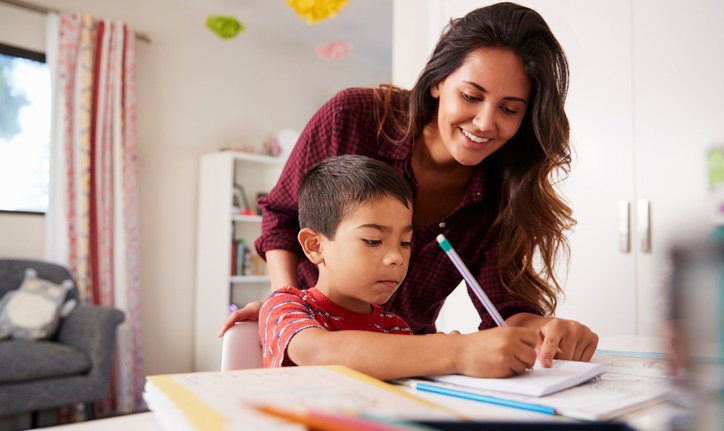
Tips for Home Learning Success with Kids
This page contains affiliate links for which we may be compensated
Last updated: July, 2025
- Establish a Dedicated Learning Space
- Set a Consistent Schedule
- Utilize Interactive Learning Tools
- Foster a Positive Learning Environment
- Tailor Lessons to Individual Learning Styles
- Encourage Regular Breaks
- Stay Connected with Teachers
- Emphasize the Importance of Goal Setting
- Lead by Example
- Foster a Love for Reading
- Conclusion
Home learning has become an integral part of a child’s education. Whether it’s due to unforeseen circumstances, like a global pandemic, or a deliberate choice, parents find themselves taking on the role of both caregiver and teacher. Achieving home learning success with kids requires careful planning, dedication, and a supportive environment. Here are some invaluable tips to optimize your home learning experience and ensure success for your children.
Establish a Dedicated Learning Space
Establishing a routine for your child requires setting up a specific area for home learning. The area needs to be peaceful and devoid of distractions like games, toys, and television. It should also have access to a power source, be well-lit, and have a dependable internet connection. Assemble a cozy workstation with a chair and table, and make sure that all the required educational resources are accessible.
Set a Consistent Schedule
Children benefit greatly from routines, so establishing one for their at-home education can make them feel safe and inspired. Maintaining a regular schedule can also assist your child in forming excellent study habits that will benefit them in all aspects of their schooling. Think about creating a schedule that allows time for play, exercise, meals, and breaks. Making sure your child gets enough sleep is crucial to preventing overwork or fatigue. Help them adhere to the routine as much as you can and encourage them to keep it up consistently.
Utilize Interactive Learning Tools
Make learning enjoyable by incorporating interactive tools and resources. Educational apps, games, and online platforms can add an element of fun to lessons, making the learning process more engaging for children. Choose age-appropriate materials to cater to your child’s learning needs.

Foster a Positive Learning Environment
A positive and encouraging atmosphere is vital for home learning success. Praise your child’s efforts, celebrate achievements, and be patient during challenging moments. A supportive environment boosts a child’s confidence and enthusiasm for learning.
Tailor Lessons to Individual Learning Styles
Every child has a unique learning style. Some may thrive with visual aids, while others prefer hands-on activities. Identify your child’s learning style and tailor lessons accordingly. This personalized approach enhances understanding and retention of information.
Encourage Regular Breaks
Children, like adults, need breaks to stay focused and alert. Schedule regular breaks during the day to allow your child to relax and recharge. Outdoor play, stretching exercises, or a quick snack can help break up the learning sessions and improve overall concentration.
Stay Connected with Teachers
Maintain open communication with your child’s teachers to stay informed about their progress and any challenges they may be facing. Collaborate with educators to address specific learning needs and ensure a seamless transition between home and school learning.
Emphasize the Importance of Goal Setting
Teach your child the value of setting achievable goals. Break down larger tasks into smaller, more manageable ones, and celebrate milestones along the way. Goal-setting instills a sense of accomplishment and motivates children to stay committed to their learning journey.

Lead by Example
Demonstrate a love for learning by showcasing your own curiosity and interest in various subjects. Children often model their behavior based on the actions of adults around them. Be a positive role model, and your enthusiasm for learning will likely rub off on your child.
Foster a Love for Reading
Reading is a fundamental skill that forms the basis of all learning. Encourage a love for reading by providing a variety of age-appropriate books and spending quality time reading together. This not only enhances literacy skills but also fosters a lifelong love for learning.
Conclusion
Achieving home learning success with kids involves a combination of structure, engagement, and positive reinforcement. By implementing these tips, you can create an environment that not only supports academic growth but also nurtures a love for learning that will benefit your child throughout their education journey.